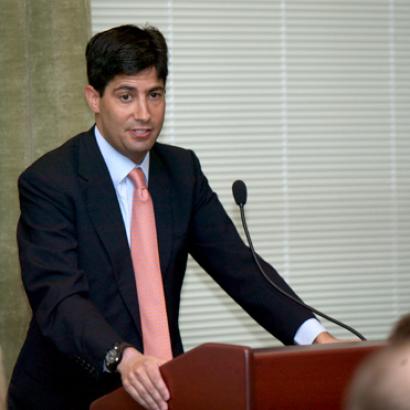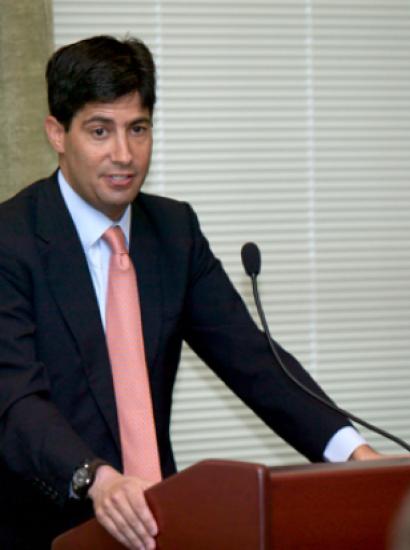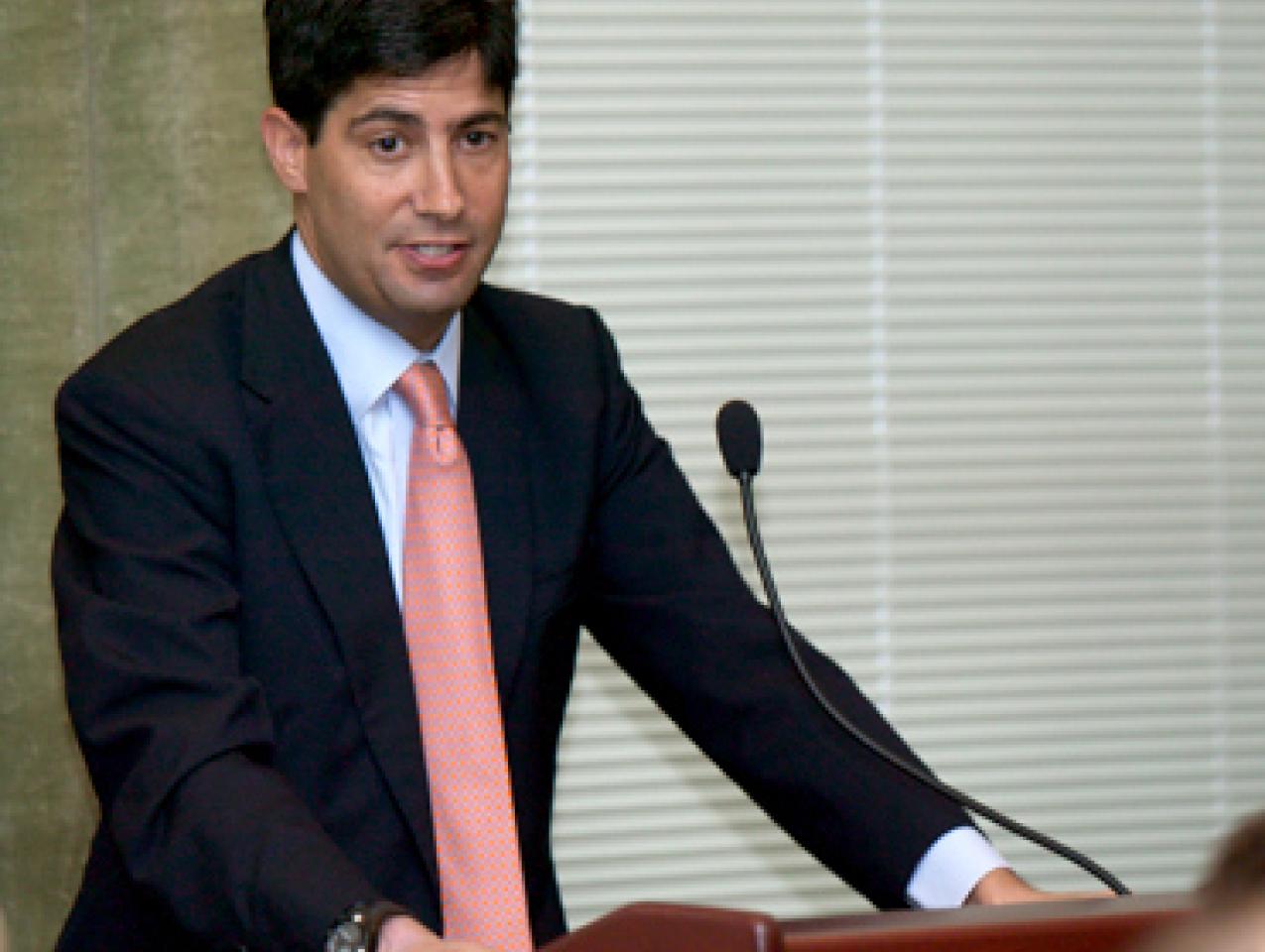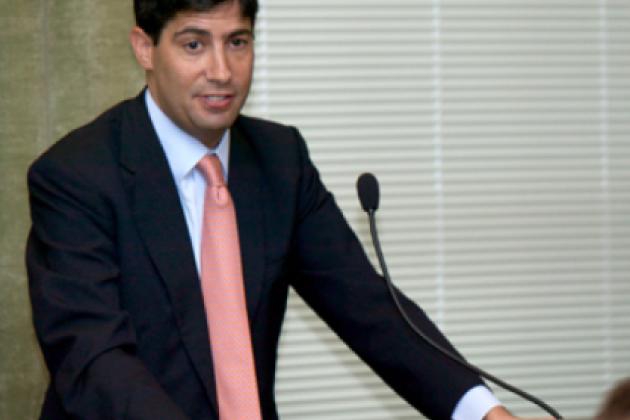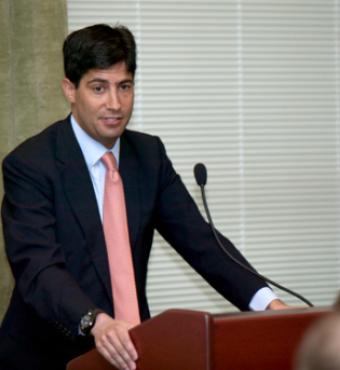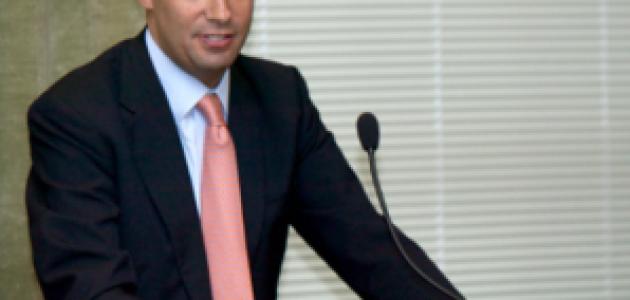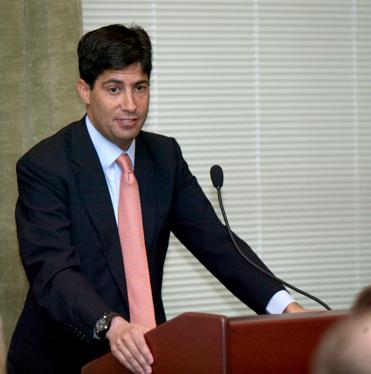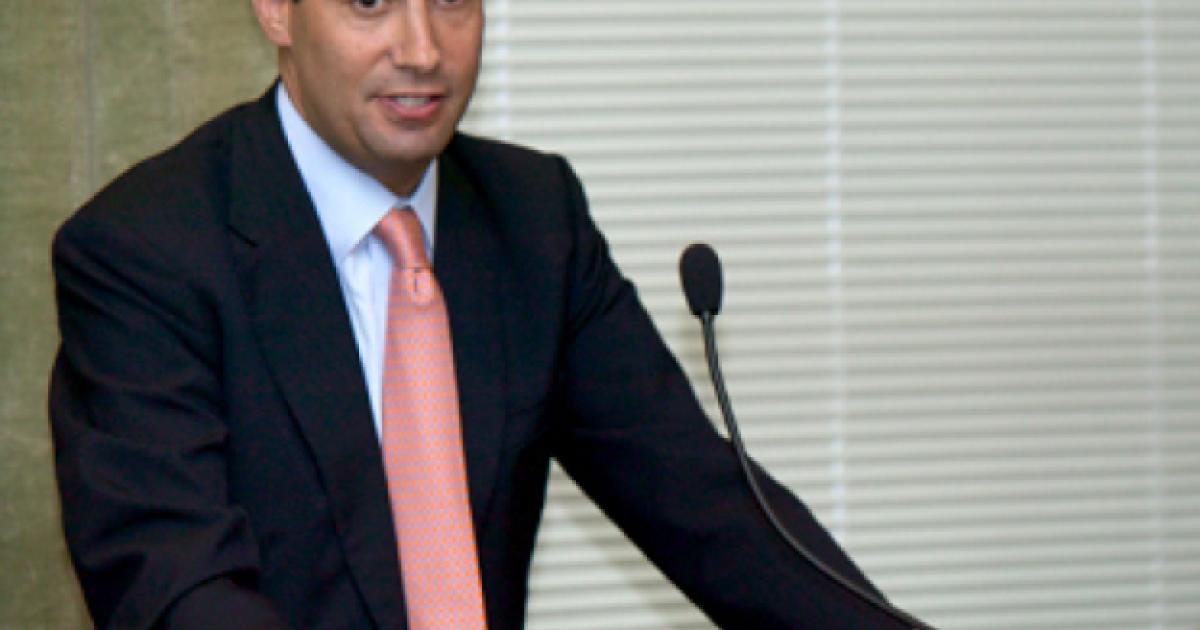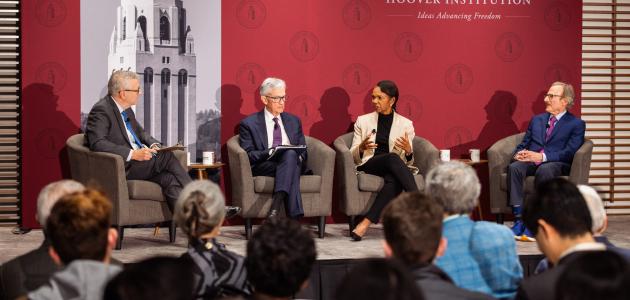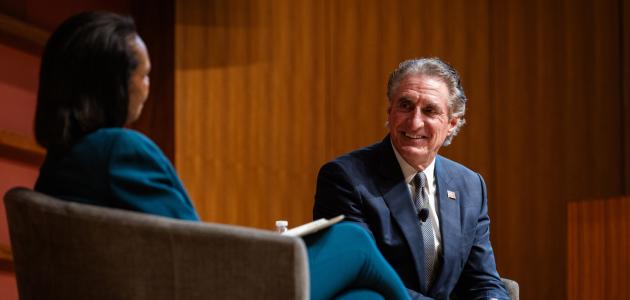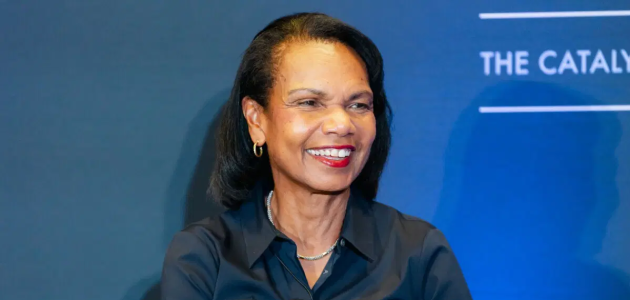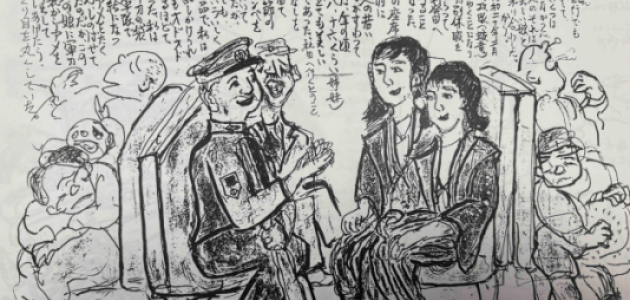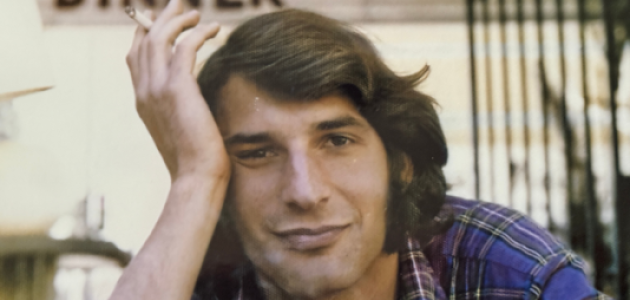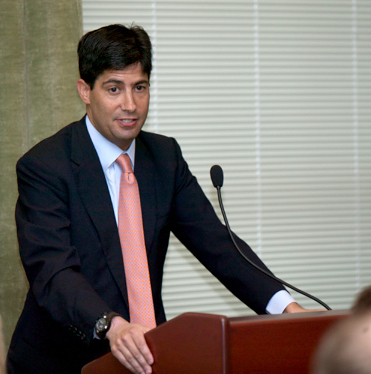
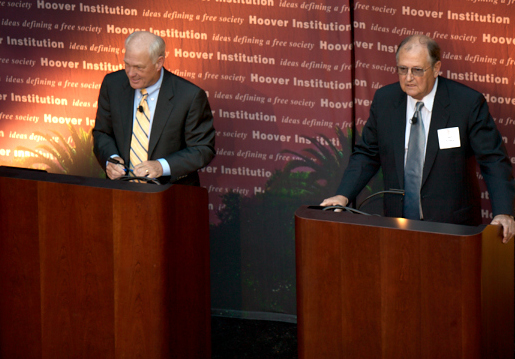
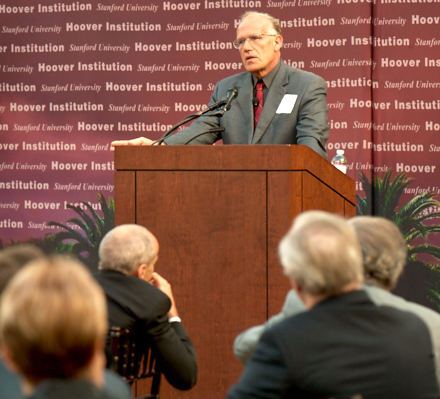
The Hoover Institution hosted the Board of Overseers’ Summer Meeting on July 12–14, 2011.
On Tuesday evening, Hoover fellows discussed topics relating to defense, global issues, entitlements, and the state of the economy. Victor Davis Hanson and Bruce Thornton’s speech was titled “America Abroad: Appeasement or Deterrence?” David Brady and John Cogan’s presentation was titled “Entitlements, Debt and Electoral Politics: How Did We Get Where We Are–and Where Do We Go from Here?” In their speech titled “The Road Ahead for the Fed: Two Years Later,” John Taylor and Kevin Warsh discussed the state of the economy today.
The Wednesday afternoon program included Hoover fellows Michael Boskin, Russell Roberts, Edward Lazear and closed with a panel discussion with Hoover fellows David Davenport, Damon Dunn, and William Whalen. The central theme discussed throughout the day was the need to control government spending and reduce the unemployment rate, which is currently over 9 percent.
Michael Boskin talked about the effect of government spending on tax rates in his speech titled “How to Avoid an Unpleasant Tax Future.” His solution to the fiscal problems of our economy today included controlling government spending. He compared job growth in economic recoveries during the Obama and Reagan administrations and touched upon the long term budget outlook. He emphasized the point that “everyone in our society, no matter what their income, is affected by the state of our economy today. “
Russell Roberts discussed the arguments of Hayek and Keynes in his talk titled “Hayek vs. Keynes: The Fight Continues.” Roberts showed a clip of his rap video, which has 3.5 million hits on YouTube, to showcase how he is bringing economics to people in way that is accessible and easily understood by everyone. “The fans of John Maynard Keynes argue that government is necessary to create demand via increases in government spending using borrowed money [whereas] the fans of F.A. Hayek argue that increases in government spending are wasteful, that larger deficits discourage risk taking, and that the centralization of power threatens our liberty.” stated Roberts. He concluded with a passage from the video posing the question “which way should we go, Keynes or Hayek? We will continue this fight.”
Edward Lazear argued that big government is the reason for the current state of the economy in his speech titled “Why the Average American Should Fear Big Government.” He paraphrases the president by highlighting that “this administration got us into this mess because they focused on short run gimmicks rather than long run solutions to the problems, which caused a huge increase in the size of the budget.” Lazear discussed rising unemployment rates, the slow recovery in the GDP growth rate, and the short term and long term problems with programs such as the Cash for Clunkers. Lazear notes the typical American should worry because “growth depends on the size of the debt and taxes.”
In a panel discussion, Hoover fellows David Davenport, Damon Dunn and William Whalen discussed the state of California’s economy in “Can California Reform Its Way Out of Trouble.” Davenport began the talk with an introduction of a data driven team called California Common Sense comprised of Stanford students who give statistical facts about California spending. Dunn addressed five issues including spending, revenue, regulatory concerns, budgeting processes, and most importantly political reform. Davenport continued the discussion talking about two bipartisan groups called California Forward and Think Long. Whalen argued that California needs to feed and enable “the beast” (California’s economic problems) and go after initiatives in order to help the state of California’s economy today.
Charles Moore, journalist for the Spectator and the Daily Telegraph, gave before-dinner remarks on July 13. Moore reflected on Lady Margaret Thatcher as leader of the western world in his remarks titled “The Courage of Her Conviction.” He profiled Thatcher’s background and illustrated a week in her life as Prime Minister of the Britain. Moore referred to Thatcher as the best “man” in the cabinet because she had a strong confidence in her character and couldn’t bear the idea of failure.
On Thursday morning, Robert Service talked about his forthcoming book titled Spies and Commissars: Russia and the West in the Bolshevik Revolution. His book covers the last years of the Soviet Union and the end of the cold war describing in detail how the Bolsheviks seized power and tried to spread communism throughout the world. He talked about the role Herbert Hoover played with his massive food relief efforts. Service used the Hoover Institution Library and Archives to find materials for his book. “If we’re going to effectively deal with the dangers of our own present day world, we have to learn the lessons from the past,” concluded Service.
Fouad Ajami and Charles Hill discussed the topic of freedom in their speech titled “Freedom–for Arabs and All Peoples–and the Fate of American Exceptionalism in the Age of Obama.” Moderated by John Raisian, the two Hoover fellows talked about the importance of freedom and American exceptionalism. Hill argued for the need for democracy and explained four major turning points which define American exceptionalism including the American founding, America’s role in the twentieth century, the cold war, and former President Bush’s Freedom Agenda. Ajami shared a Saudi satire piece and gave his views on the Arab Spring in Syria and the importance of the need for freedom. “Freedom across history has not been the dominant force. There has not been much freedom. Politically, there seems to be no real way to guarantee freedom without democracy,” Hill stated.







